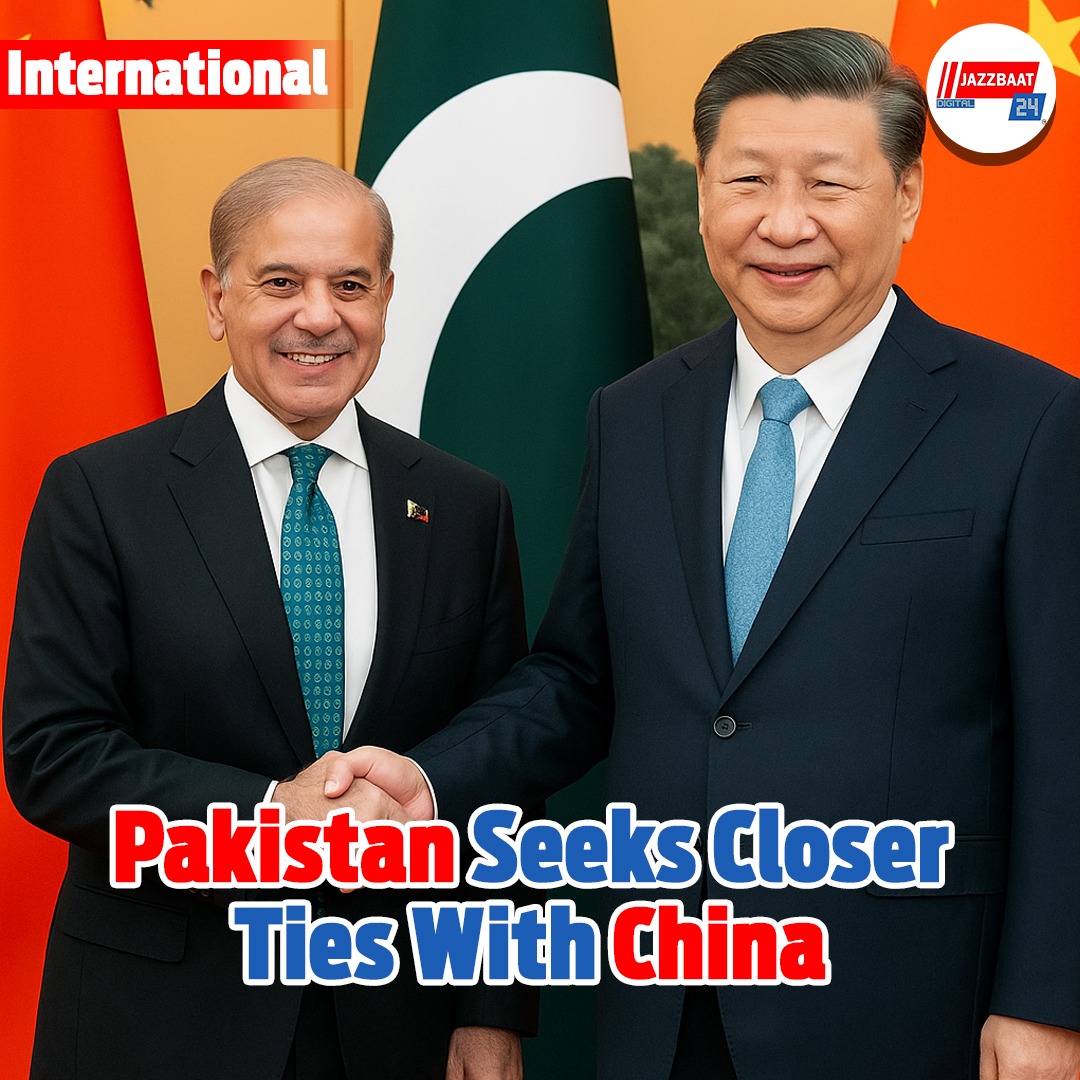
There are signs of a new shift in the diplomatic map of South Asia. Although there has been an apparent ceasefire between India and Pakistan after 'Operation Sindoor', Islamabad's recent steps have made it clear how turbulent the situation is. In the midst of this conflict, Pakistan has approached its close ally China. The aim is the same - to keep a world power on its side on the international stage even in these difficult times and to strengthen its presence in the geopolitical equation of South Asia.
It is in this context that Pakistani Foreign Minister Ishaq Dar has left for Beijing. He is scheduled to arrive in China on Monday, where he is scheduled to have an important meeting with Chinese Foreign Minister Wang Yi. But this visit is not only aimed at strengthening bilateral relations. The real focus is on the trilateral meeting on Tuesday, where the acting foreign minister of Afghanistan will also be present along with China and Pakistan. The trilateral meeting will discuss the security situation in South Asia, trade cooperation and how to move forward together to maintain regional stability.
The significance of this meeting is deeper. While several international circles have expressed concern over the India-Pakistan conflict, the diplomatic activities of Islamabad and Kabul are creating the possibility of a new polarization with China in mind. A few days ago, the Foreign Minister of the Taliban government gave a friendly message to Indian Foreign Minister S Jaishankar. However, the representative of the Taliban administration has also visited China, where he will hold joint talks with Pakistan. As a result, it is clear that bypassing India, some South and Central Asian countries led by China are moving towards forming a new political alliance.
In this situation, it must be remembered that the relationship between China and Pakistan is not only strategic or economic, but also deeply intertwined at the political and military levels. On May 10, the day after the India-Pakistan ceasefire, Chinese Foreign Minister Wang Yi called Pakistani Foreign Minister Ishaq Dar. After that conversation, the Pakistan Foreign Ministry issued a statement saying that China has always been a close friend of Pakistan and will remain so in the future. Wang Yi also assured that China will stand by Pakistan in protecting its sovereignty, integrity and independence. At the same time, he praised the Pakistani leadership, saying that the way the administration has handled the situation in the face of the crisis has given him 'confidence' that Islamabad will be able to maintain its strategic position.
In this situation, Pakistan's activity has also been noticed in the international community. Some say that Islamabad is trying to balance the accusations and pressure against it from under China's diplomatic shadow. Because, the fact that Pakistan was cornered in the global media after 'Operation Sindoor' cannot be denied. The Shahbaz Sharif administration believes that China's support is very important to get itself out of that place.
Now the question is, will this trilateral meeting be limited to strategic discussions only, or will it create a larger political message? If Afghanistan, Pakistan and China move towards drafting a new security policy or trade agreement around the region, it could directly impact India’s geopolitical position. Especially, if India is not mentioned in this meeting but the discussions are India-centric, then it is clear that a new factional equation has begun in regional politics.
So, behind the temporary peace that is seen after the ceasefire on the India-Pakistan border, diplomatic instability persists. Islamabad’s visit to Beijing and the trilateral meeting make it clear that the geopolitics of South Asia is about to change its color once again, where new diplomatic challenges are waiting to be created for India.